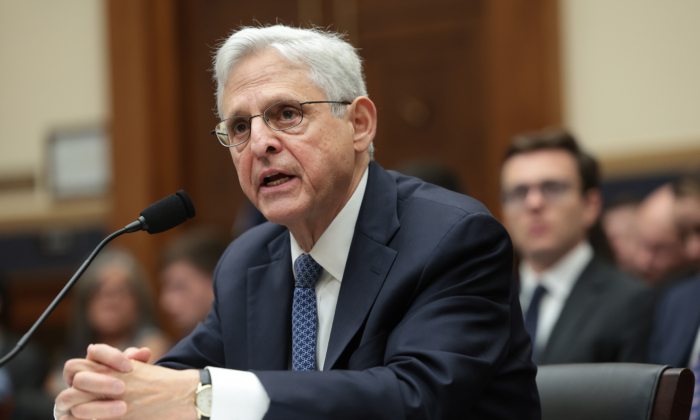The DOJ previously said it intends to eventually publicly disclose Jack Smith’s final report on his prosecutions of President-elect Donald Trump.
Update:
A federal appeals court on Thursday rejected a bid to block the public release of special counsel Jack Smith’s report on President-elect Donald Trump’s efforts to challenge the 2020 election result.
The 11th U.S. Circuit Court of Appeals turned down an emergency challenge from Trump and his co-defendants in his classified documents case, who are fighting to keep the report under wraps because they say it’s one-sided and prejudicial.
Earlier version as follows:
Attorney General Merrick Garland has assured congressional leaders that the Department of Justice (DOJ) will publicly release the final report from special counsel Jack Smith’s investigation into President-elect Donald Trump—but only once the courts give it the green light.
In a letter dated Jan. 8, Garland informed key members of the Senate and House Judiciary Committees that the DOJ is temporarily restricted from sharing the report due to a court order issued a day prior by U.S. District Judge Aileen Cannon.
Cannon on Jan. 7 ordered the DOJ not to release the two-volume report—one volume relating to Smith’s investigation into Trump’s alleged election interference and the second containing the findings of the special counsel’s probe into classified documents allegedly held unlawfully at the president-elect’s Mar-a-Lago residence.
The judge’s order bars the release of the entirety of the report until three days after the 11th U.S. Circuit Court of Appeals has reviewed a motion by Trump’s co-defendants in the classified documents case, Walt Nauta and Carlos De Oliveira. Attorneys for Nauta and De Oliveira have asserted that because the two defendants still face the threat of criminal prosecution, the final report could prejudice those proceedings, with Cannon siding with that argument in issuing her decision barring the DOJ from releasing the report.
Garland wrote in his letter to lawmakers that the DOJ is committed to transparency while adhering to the legal restrictions around the report’s release.
“When permitted to do so by the court, I intend to provide to you and to the public Volume One of the Report. I have determined that releasing these materials to you and the public at this time is consistent with 28 C.F.R. § 600.9(c) and other applicable law, and that this release is in furtherance of the public interest in informing a co-equal branch and the public regarding this significant matter,” Garland wrote.
The attorney general also addressed volume two of the report, the one pertaining to Nauta and De Oliveira. He said this part of the report would not be made public as long as the criminal proceedings against the two defendants are ongoing. In the meantime, Garland offered to provide volume two to Congress for private review under strict conditions, including an agreement not to release any information publicly. He further clarified that once the related criminal cases are fully resolved, the DOJ does intend to release volume two to the public.
“I have determined that once those criminal proceedings have concluded, releasing Volume Two of the Report to you and to the public would also be in the public interest, consistent with law and Department policy,” Garland wrote.
The message in Garland’s letter is broadly consistent with the contents of a DOJ court filing that indicated both volumes of the report would eventually be released to the public.
Under federal law, special counsels are required to prepare a final report outlining their prosecution decisions and submit it to the attorney general, who has the discretion to determine whether the report will be made public.
After Trump won the presidential election, Smith moved to dismiss the classified documents case and the election interference case against Trump, citing DOJ rules around not prosecuting presidents. The motions to dismiss were made “without prejudice,” however, meaning charges could be refiled after Trump finishes his second term as president.
Standing in the way of potential re-prosecution is the statute of limitations and the prospect of Trump pardoning himself.
The Associated Press contributed to this report.

